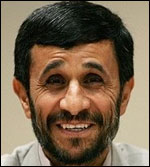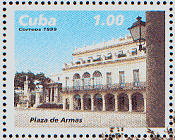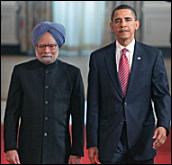 Nigeria has reported that it has intercepted a shipment of weapons from Iran in violation of U.N. Sanctions and plans on reporting the intercepted exports as required by the U.N. resolutions enacting those sanctions. The shipment, which originated from the Iranian port of Bandar Abbas, contained rocket rounds, rifles, grenades and explosives. The boxes, which were intercepted by Nigerian security agents at the Nigerian port of Apapa, were labeled “building materials.”
Nigeria has reported that it has intercepted a shipment of weapons from Iran in violation of U.N. Sanctions and plans on reporting the intercepted exports as required by the U.N. resolutions enacting those sanctions. The shipment, which originated from the Iranian port of Bandar Abbas, contained rocket rounds, rifles, grenades and explosives. The boxes, which were intercepted by Nigerian security agents at the Nigerian port of Apapa, were labeled “building materials.”
Iran immediately responded with a version of the dog-ate-my-homework excuse:
“A private company which had sold conventional and defensive weapons to a West African country had transferred the shipment through Nigeria,” Foreign Minister Manouchehr Mottaki told reporters, according to Iran’s state-run Press TV.
This hardly settles the matter as to whether the shipment violates U.N.S.C.R. 1747 which says that:
Iran shall not supply, sell or transfer directly or indirectly from its territory or by its nationals or using its flag vessels or aircraft any arms or related materiel
Taking a cue from Baghdad Bob, Foreign Minister Mottaki further elaborated by saying that the whole business was a “misunderstanding” that had all been cleared up by Nigerian authorities. Nigeria said this was, simply put, a lie:
[A] spokesman of the Foreign Affairs Ministry, Ozo Nwobo[,] explained that nothing has been settled as government was yet to finish its investigations over the arms saga.
Don’t be surprised if the next story floated by Mottaki is that the shipment only contained squirt guns and Tickle-Me-Elmos.

 Posted by
Posted by  Category:
Category: 

 According to this
According to this 
 This blog
This blog  A
A 

